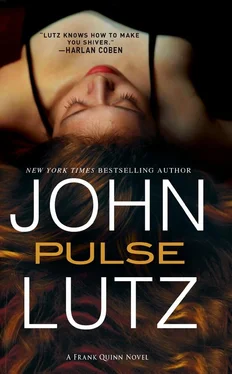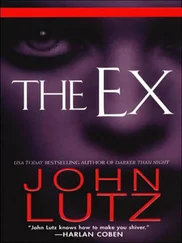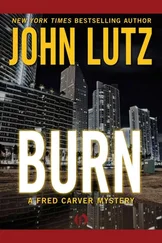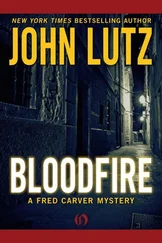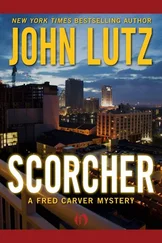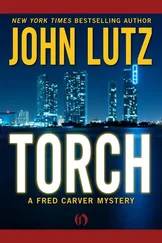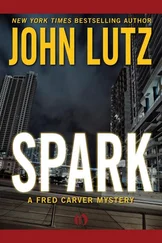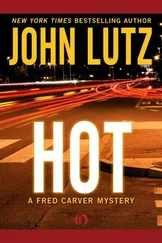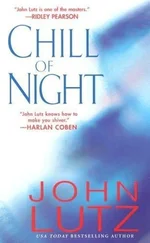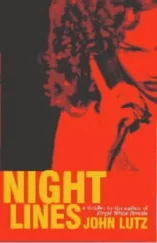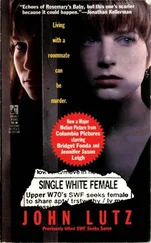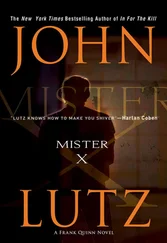John Lutz - Pulse
Здесь есть возможность читать онлайн «John Lutz - Pulse» весь текст электронной книги совершенно бесплатно (целиком полную версию без сокращений). В некоторых случаях можно слушать аудио, скачать через торрент в формате fb2 и присутствует краткое содержание. Жанр: Криминальный детектив, на английском языке. Описание произведения, (предисловие) а так же отзывы посетителей доступны на портале библиотеки ЛибКат.
- Название:Pulse
- Автор:
- Жанр:
- Год:неизвестен
- ISBN:нет данных
- Рейтинг книги:5 / 5. Голосов: 1
-
Избранное:Добавить в избранное
- Отзывы:
-
Ваша оценка:
- 100
- 1
- 2
- 3
- 4
- 5
Pulse: краткое содержание, описание и аннотация
Предлагаем к чтению аннотацию, описание, краткое содержание или предисловие (зависит от того, что написал сам автор книги «Pulse»). Если вы не нашли необходимую информацию о книге — напишите в комментариях, мы постараемся отыскать её.
Pulse — читать онлайн бесплатно полную книгу (весь текст) целиком
Ниже представлен текст книги, разбитый по страницам. Система сохранения места последней прочитанной страницы, позволяет с удобством читать онлайн бесплатно книгу «Pulse», без необходимости каждый раз заново искать на чём Вы остановились. Поставьте закладку, и сможете в любой момент перейти на страницу, на которой закончили чтение.
Интервал:
Закладка:
Quinn waited.
“I remember now,” Schueller said. “If I’m not mistaken, some of Waycliffe’s money is invested in Meeding Properties stock. But then so are the funds of a number of investment firms.”
“I’m thinking of a law firm that recently celebrated a woman’s death so they could advise their clients to move in on her property.”
“You’re speaking of Enders and Coil, I assume. We and that firm have a long history. They employ several Waycliffe alumni. Two associates and an intern, if memory serves.”
“I think it does.”
“Even students bright enough to matriculate at Waycliffe like to party,” Schueller said.
Quinn couldn’t argue with that.
“Law firms aside, why do you suddenly inquire about a serial killer in connection with Waycliffe?” Schueller asked.
“He isn’t nearly finished.”
“Good Lord! How can you know that?”
“There were two similar murders in Wisconsin,” Quinn said.
“Recently?”
“About twenty-five years ago. Two young women, buried not far apart.”
“Surely that has nothing to do with what’s happening in New York now.”
“ Surely is a word I use carefully.”
“I understand that. But what have murders that happened long ago in Leighton, Wisconsin, have to do with-”
“Did I mention Leighton?”
For a fraction of a second, Schueller was silent. When he did speak, there was no uncertainty in his voice. “I’m pretty sure you did. Or maybe I saw or heard it on the news without realizing it and it stuck in my mind.”
“That word sure again,” Quinn said.
“Perhaps, like many people, I use it too much,” Schueller said.
“I think we all do,” Quinn said. “I overheard some detectives talking about the Wisconsin cases and was sure somebody mentioned Waycliffe. He might not even have said that, but something that rhymes with it. Or maybe somebody named Waycliffe. Turns out it had nothing to do with the college. You’ve satisfied my curiosity, Chancellor.”
“Good. That’s more or less our business.”
“I appreciate you taking the time.”
“Those deaths in Wisconsin,” Schueller said, “is there some suspicion that they somehow, in some manner, involved Waycliffe College?”
“Why would you ask that?”
“I’m interested in anything that involves our young people. Or our grand tradition. I’m proud to say there aren’t many historical black marks on this institution. I’d appreciate it if you’d confirm my belief that no one at Waycliffe was involved.”
Quinn considered lying to him, then decided that if Schueller knew more than he was telling, it wouldn’t be a bad idea to let him sweat.
“We always try to look at every possibility,” he said. “Thanks again for your time, Chancellor.”
He hung up before Schueller had a chance to reply.
The chancellor sat silently for a long while, trying to think of something that rhymed with Waycliffe.
The sun sent angled rays of gold through the tall windows of the Albert A. Aal Memorial Library, illuminating the Crime Fiction section of the Literary Department. The rays were also heating the glue of the book spines so that they emitted the certain smell that could be found only in repositories of old books. Ms. Culver loved that smell.
The morning should have been conducive to her happiness, but it wasn’t.
“Amazon announced again that it’s selling more e-books than conventional paper and text books,” Ms. Culver said. She was woefully reading the news online while seated at one of the library’s computers, but Penny thought it would be wise not to point that out.
Instead, she said, “Someone told me that at one time people thought the gramophone would destroy the book market. That people would be making celebrities of professional narrators rather than writers. Folks would be no more interested in whoever wrote what was being read than they’re interested in screenplay writers today.”
“It makes a kind of sense,” Ms. Culver said.
“Yet books continued to thrive.”
Ms. Culver didn’t bother looking over at her. She didn’t see how you could make the comparison. “Apples and bicycles.”
“Those are still thriving, too,” Penny pointed out.
One of the library doors opened and closed. Not time yet for the mail, so it should be a reader. Both Penny and Ms. Culver turned to peer toward the front of the library.
A tall, thin but potbellied man in a wrinkled Armani suit appeared around the corner of nonfiction. Larry Fedderman, showing the effects of the heat outside the comparatively cool and quiet library.
“Your husband,” Ms. Culver said in a neutral voice.
Penny brightened. “Feds!”
Then she remembered she was annoyed with him. Despondent over the fact that he kept pursuing a job that might abruptly end his life and their happiness. Pursuing a killer. With effort, she changed her expression to one of grim tolerance.
What Penny felt like doing was dropping by the shooting range and blasting away at the anonymous male figure on the target sheets.
Fedderman grinned as he came toward them.
“Apples and bicycles,” Ms. Culver said.
“Nooners are out already,” Mimms, the vice cop, said, where he sat with Nancy Weaver in a battered, unlettered white van. He was a veteran cop with tiny dark eyes that were set too close together and almost nonexistent lips.
Another cop, known by Weaver only as Chick, probably because of his blond cowlick that looked like a rooster comb, sat in the seat behind her. Behind Chick, the van was caged and equipped to serve as a temporary holding cell and a paddy wagon.
Chick was wearing earphones that were plugged into a receiver bolted to the bottom of the van’s dash board. Also mounted in the van was a small video recorder, the camera of which was concealed in the van’s grille and aimed at a moderately busy corner in South Manhattan. There was a second camera on a nearby streetlight, aimed at the same area as the first but at a different angle. Both cameras’ feeds were to the digital video recorder inside the van. The corner where the van was parked had a reputation something like Weaver’s.
All three cops were in plainclothes, though Weaver’s short red skirt, fishnet stockings, tight black T-shirt, and black calf-length boots didn’t quite fit the description.
“It’s not even eleven-thirty,” Weaver said, trying to tuck in the flimsy T-shirt. It was made out of some kind of stretch material that kept working back up from beneath her thick black leather belt.
“That’s okay,” Mimms said. “We can nail the johns out for early nooners.” He pointed out the van’s windshield. “Go stand on the corner over there and say something, so Chick knows your wire’s working okay. We’ll flash the headlights if you’re coming through loud and clear.”
“And remember,” Chick said. “Get them to give you the money. Then you say something to let us know the exchange has been made, and we’ll be over there and reading them their rights in no time.”
“You won’t be in any danger,” Mimms assured her for about the twentieth time.
Weaver didn’t see why not.
She waited until there was a slowdown in traffic, so a minimum of people would notice her exit the van. Then she opened the door and lowered herself onto the street, trying to do it modestly and almost falling in her five-inch heels. When she found her balance and stood up straight she felt tall in the boots. Hell, she was tall.
The embarrassment she’d felt climbing down out of the van left her. She tucked in the T-shirt again, felt it pop up above her belt, and decided to leave it there. Bare midriff would be a turn-on for these jokers.
Walking in the boots was kind of a hoot. She could feel people’s eyes on her, and Chick and Mimms had to be watching from inside the van.
Читать дальшеИнтервал:
Закладка:
Похожие книги на «Pulse»
Представляем Вашему вниманию похожие книги на «Pulse» списком для выбора. Мы отобрали схожую по названию и смыслу литературу в надежде предоставить читателям больше вариантов отыскать новые, интересные, ещё непрочитанные произведения.
Обсуждение, отзывы о книге «Pulse» и просто собственные мнения читателей. Оставьте ваши комментарии, напишите, что Вы думаете о произведении, его смысле или главных героях. Укажите что конкретно понравилось, а что нет, и почему Вы так считаете.
